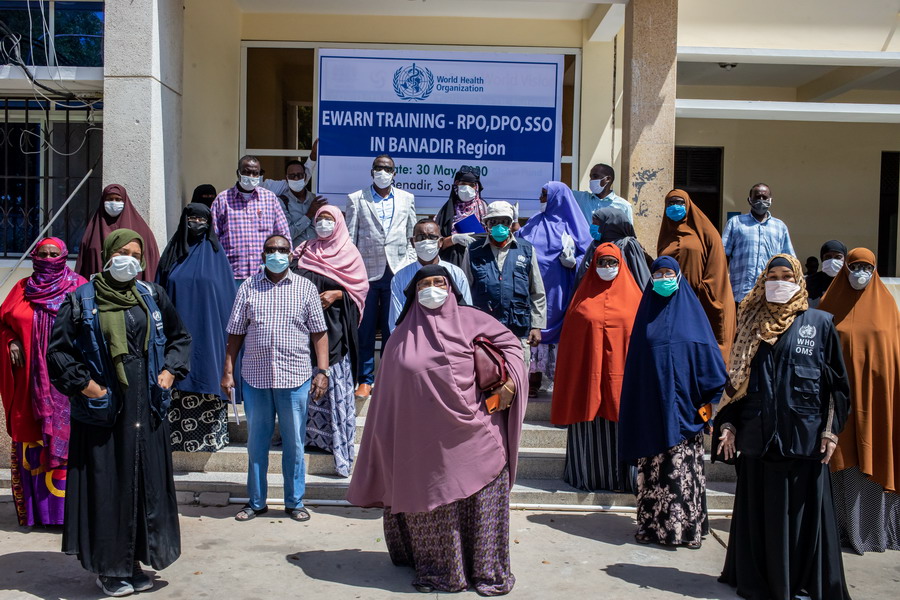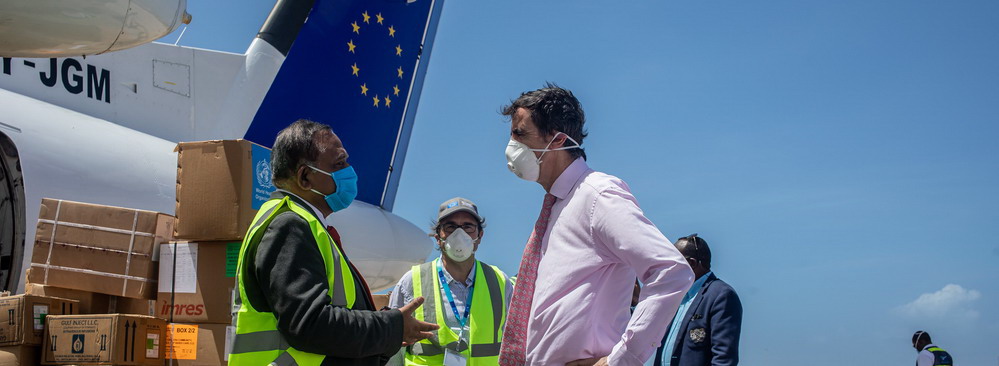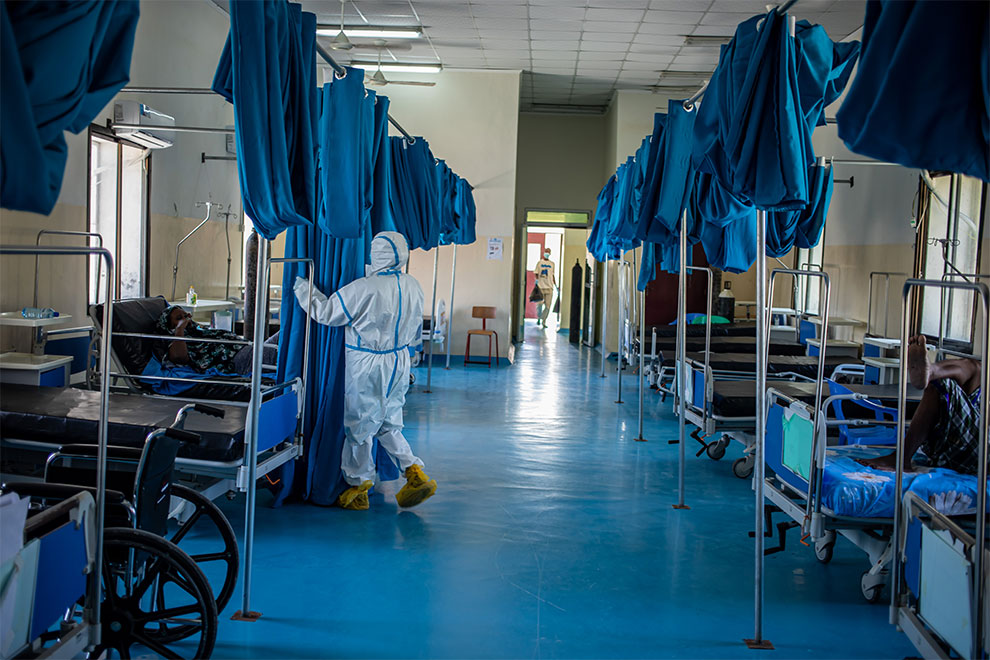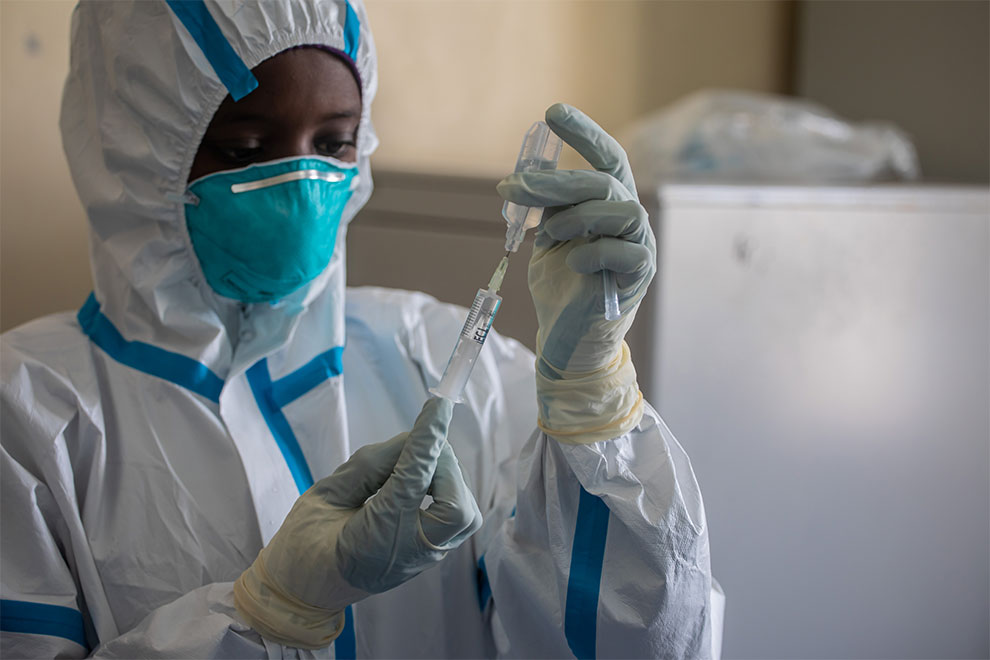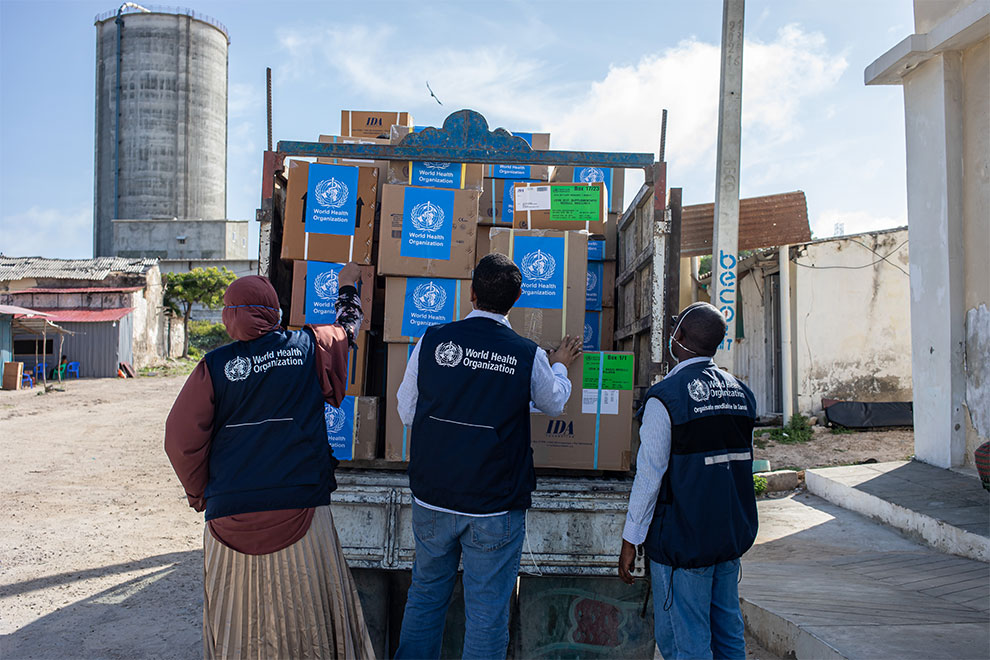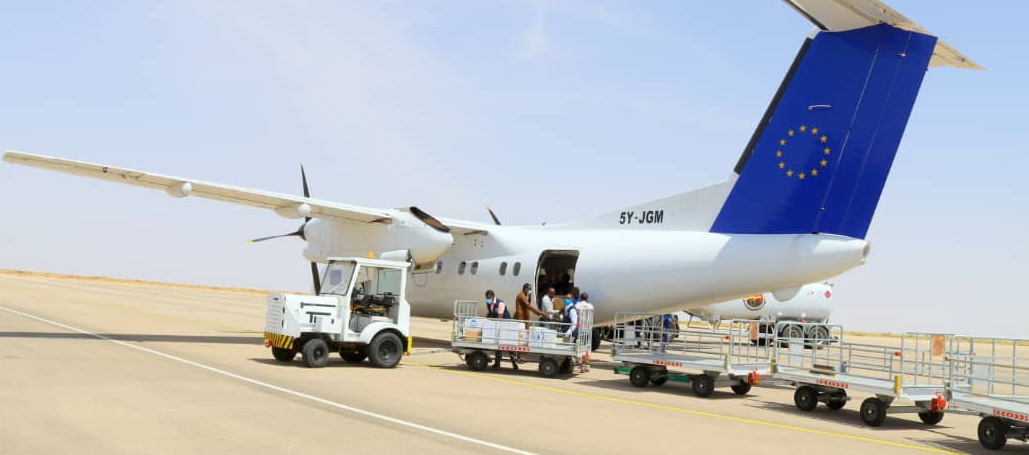
Mogadishu, 18 June 2020 – The Delegation of the European Union (EU) to Somalia conducted another special flight at the request of WHO in Somalia to airlift lifesaving medicine and other emergency hospital supplies to Beletweyne, as well as medical and laboratory supplies to Hargeisa and Garowe. These flights took place between 11 and 12 June 2020.
In Beletweyne, an area recently affected by flooding caused by heavy rainfall, the flight delivered 3535 kgs of supplies, including oral rehydration solution, cholera saline and other emergency medicines for patient care, capable of treating over 700 suspected cases of cholera over the next 3 months. Since heavy rains are predicted for the remainder of June, these supplies will support emergency health care for cholera and other waterborne diseases for vulnerable populations in affected areas, as well as offer basic health care services in these areas, long after flood waters recede.
The flights to Hargeisa and Garowe delivered a total of 1362.5 kgs of medical and laboratory supplies to support COVID-19 response efforts. The supplies include personal protective equipment, 13 500 medical masks, 9450 gloves, 270 protective goggles, 270 gowns, 4050 respiratory masks, as well as personal protective equipment, laboratory supplies and equipment to support PCR testing for COVID-19 at both locations. All items delivered will provide critical support to ongoing efforts aimed at combatting and protecting people from COVID-19 and its spread at community level.
This joint operation remains part of the new bilateral technical coordination mechanism established between the WHO country office and the Delegation of the EU to Somalia, which aims to strengthen operational response activities, including for COVID-19. On 3 May, EU flights also airlifted critical medical equipment and supplies from Mogadishu to Kismayo to support Jubaland state in tackling COVID-19. Then, on 20 and 21 May, the EU airlifted lifesaving medicine and other emergency hospital supplies to Jowhar, Kismayo and Baidoa ‒ areas which were also affected recently by floods due to heavy rains. In addition, the European Civil Protection and Humanitarian Aid Operations (ECHO) hasy provided US$ $1.8 million to WHO’s COVID-19 preparedness and response operations in Somalia.
Related links
WHO and EU unite to fight COVID-19 in Somalia
EU and WHO unite to deliver critical life-saving supplies to flood-affected areas in Somalia
For further information:
Abdikadir Abdi
Press and information officer
EU Delegation to Somalia
Email:
Cette adresse email est protégée contre les robots des spammeurs, vous devez activer Javascript pour la voir.
Mr Kyle Defreitas
External Relations & Resource Mobilization Officer
World Health Organization, Somalia
Mob: +254-782-501-324
Email:
Cette adresse email est protégée contre les robots des spammeurs, vous devez activer Javascript pour la voir.





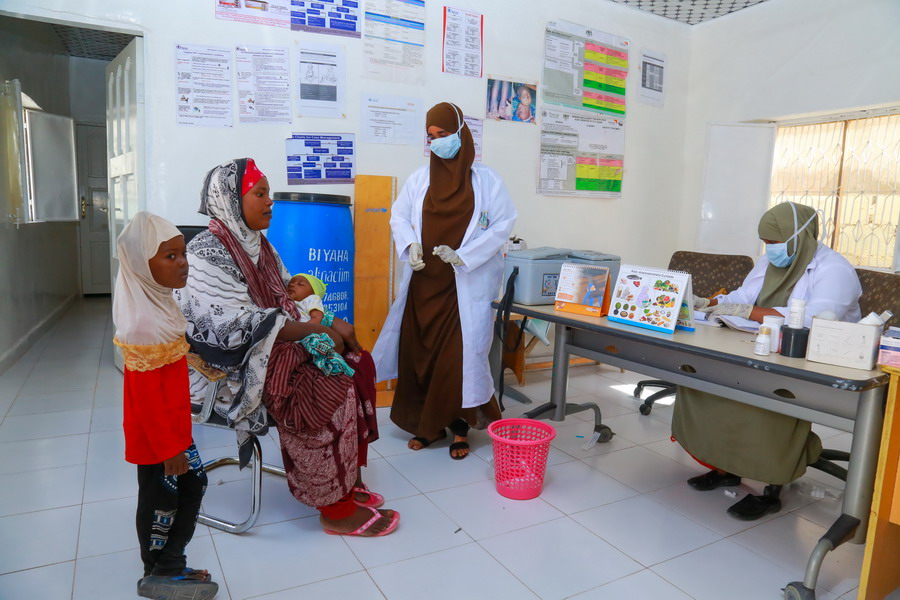
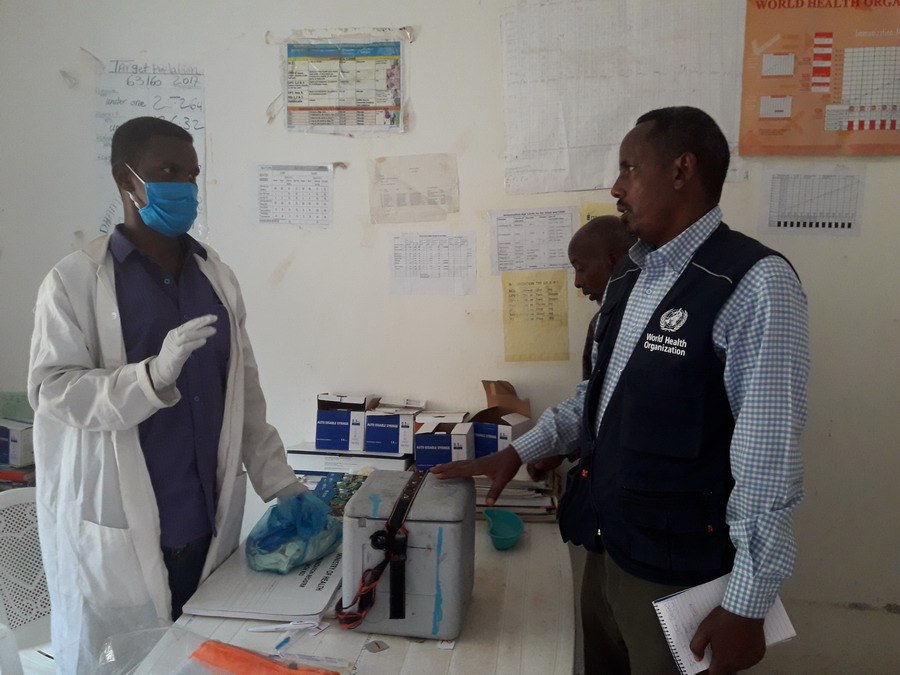
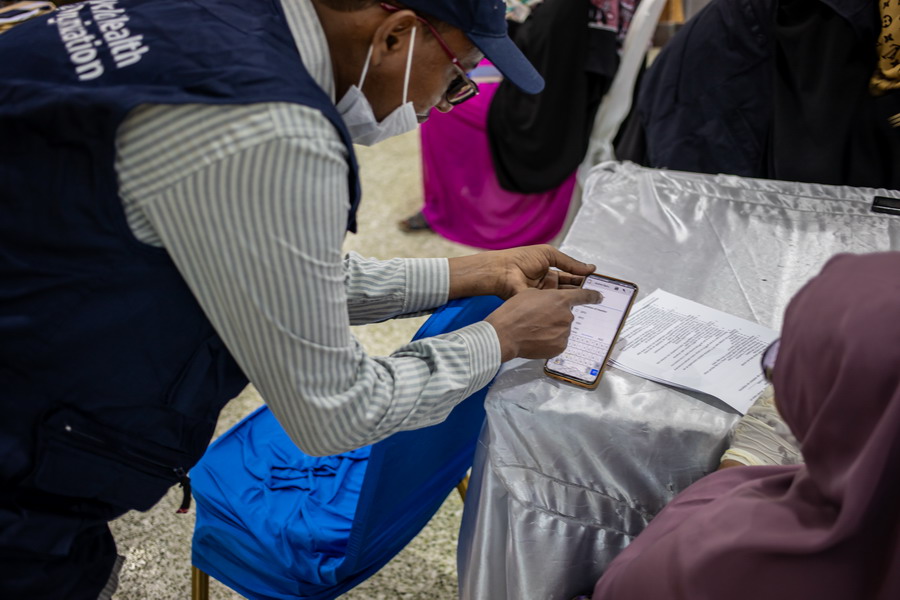 .
.